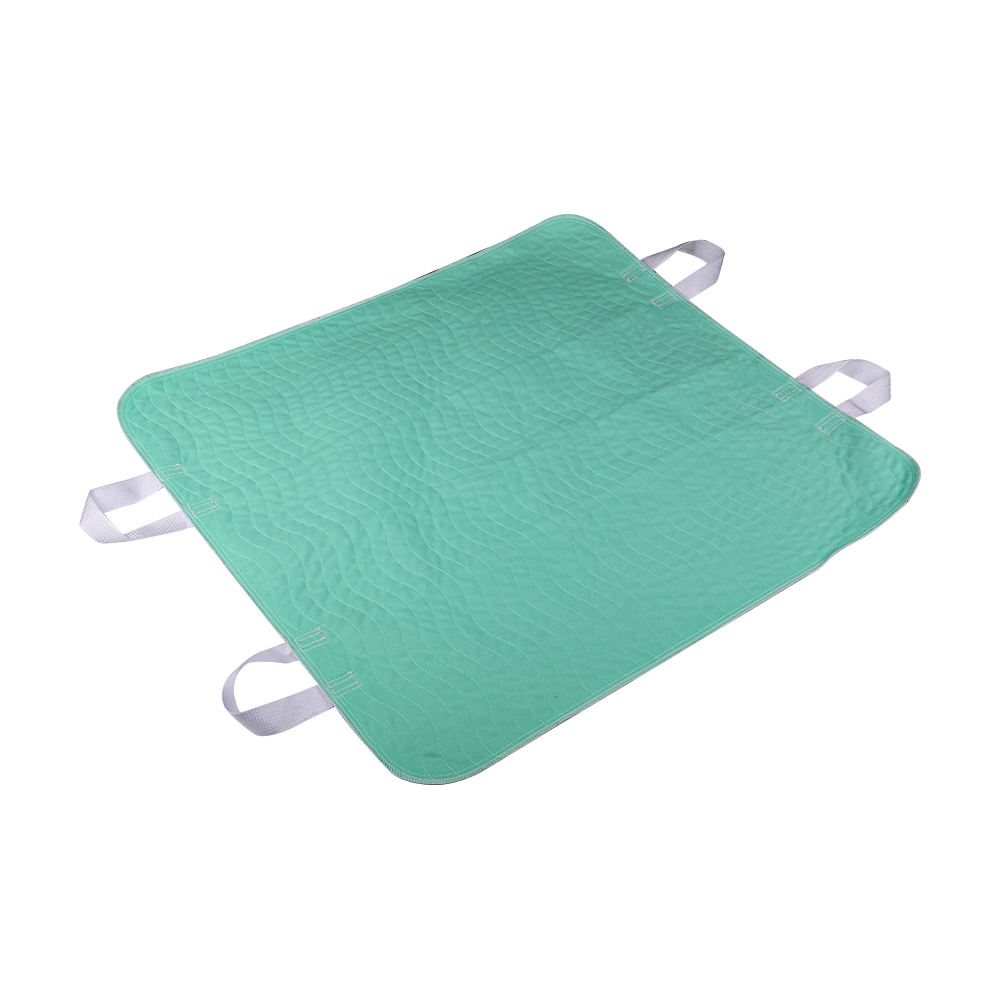The Reusable Incontinence Underpad is highly suitable for use in a healthcare setting like a hospital or assisted living facility due to several reasons:
Absorbency: The underpad is designed with advanced absorbent materials that quickly and efficiently absorb and lock away fluids. This feature is vital in a healthcare setting where patients may have varying degrees of incontinence, and it helps prevent leakage and potential contamination of furniture, bedding, or medical equipment.
Waterproof Barrier: The underpad has a waterproof backing that prevents fluids from seeping through and protects underlying surfaces from moisture damage. This is particularly crucial in healthcare environments where maintaining a dry and hygienic environment is necessary to prevent the spread of bacteria and infections.

Antimicrobial Properties: Some reusable underpads are treated with antimicrobial agents that inhibit the growth of bacteria and reduce the risk of infections. This is especially beneficial in healthcare settings, where individuals may have compromised immune systems or conditions that require extra protection against pathogens.
The Reusable Incontinence Underpad is designed to withstand frequent washing and drying without compromising its functionality. In healthcare settings, where hygiene is of utmost importance, having a durable underpad that can withstand multiple washes is cost-effective and ensures a consistent level of protection.
Comfort and Skin Health: Many reusable underpads are made of soft and skin-friendly materials that enhance patient comfort and minimize the risk of skin irritation or pressure sores. This is particularly essential for patients who are bedridden or have limited mobility, as prolonged exposure to wetness can cause discomfort and skin breakdown.
Cost-effectiveness: Reusable underpads are a cost-effective option for healthcare facilities compared to disposables. The initial investment in reusable underpads can be offset by their long-term use and the avoidance of ongoing expenses associated with disposable products. Additionally, by using reusable underpads, healthcare facilities can reduce the environmental impact of disposing of large quantities of single-use items.

 English
English Deutsch
Deutsch









